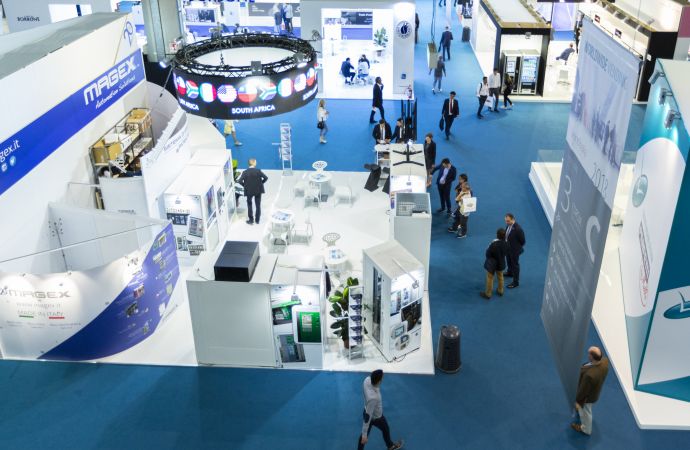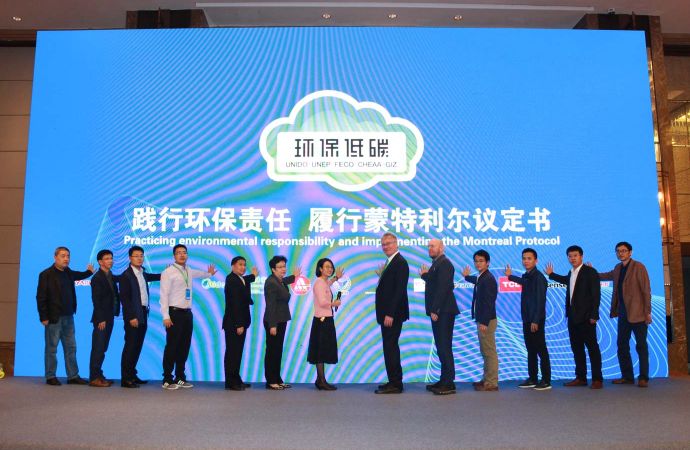Hydrocarbons are starting to make inroads into the vending machine industry, which for natural refrigerants was dominated until recently by CO2.

An increasing number of companies are choosing hydrocarbons for their vending machines, it emerged at Venditalia 2018 in Milan (Italy), one of Europe’s biggest automatic distribution events (6-9 June).
The EU F-Gas Regulation will impact the vending machine sector: it is phasing down HFCs with a GWP above 150 in hermetically sealed commercial refrigeration by 2022. Natural refrigerants are already stepping in as replacements, but a clear direction as to which is the primary choice is yet to emerge.
Some significant manufacturers (FAS, Bianchi Vending) are more favourable to carbon dioxide, while other big industry players have been investing in hydrocarbon-based technology.
Davide Bargero, marketing manager at Epta, told this website that almost the 90% of the firm’s vending range uses hydrocarbons. Propane (R290) is the primary choice, although some models use isobutane (R600a).
All the firm’s vending machines reaching below 0°C temperature already use natural refrigerants, Bargero said; for higher temperatures, the transition seems to be slower. HFCs are used in only few of their products, mostly in countries with particular technical features (e.g. voltage requirements in Japan).
Epta cited the continuous innovation in technology and better feasibility in reduced spaces among the reasons for opting for hydrocarbons over CO2.
A similar decision in favour of hydrocarbons was taken by German manufacturer Sielaff. Even though the majority of their sales are still HFC-based (R134a) units, hydrocarbons are becoming more important.
“Carbon dioxide was at the centre of the discussion in the previous edition of the trade show in 2016, but in the last two years the loud noise coming from systems using CO2 has reduced its appeal,” said Sielaff’s marketing manager, Sabine Gedeon. Yet despite its more favourable expectations on hydrocarbons, the company still continues to produce CO2-based systems too.
Sanden Vendo cited reduced interest in carbon dioxide from multinationals like the Coca- Cola Company as a driver of their research on hydrocarbon technology. At Venditalia the firm presented its first hydrocarbon-based vending machine, the DV9 (read more about it in this article).
Although other companies are waiting for market demand to take a clear direction in favour of either hydrocarbons or carbon dioxide, some, including COSMETAL (Celli Group), have already started testing propane-based prototypes to be produced in series by the end of the year.
Venditalia, held every two years in Milan, hosted more than 300 companies operating in the vending machine and bottle cooler sector from all over the world.
Related stories



